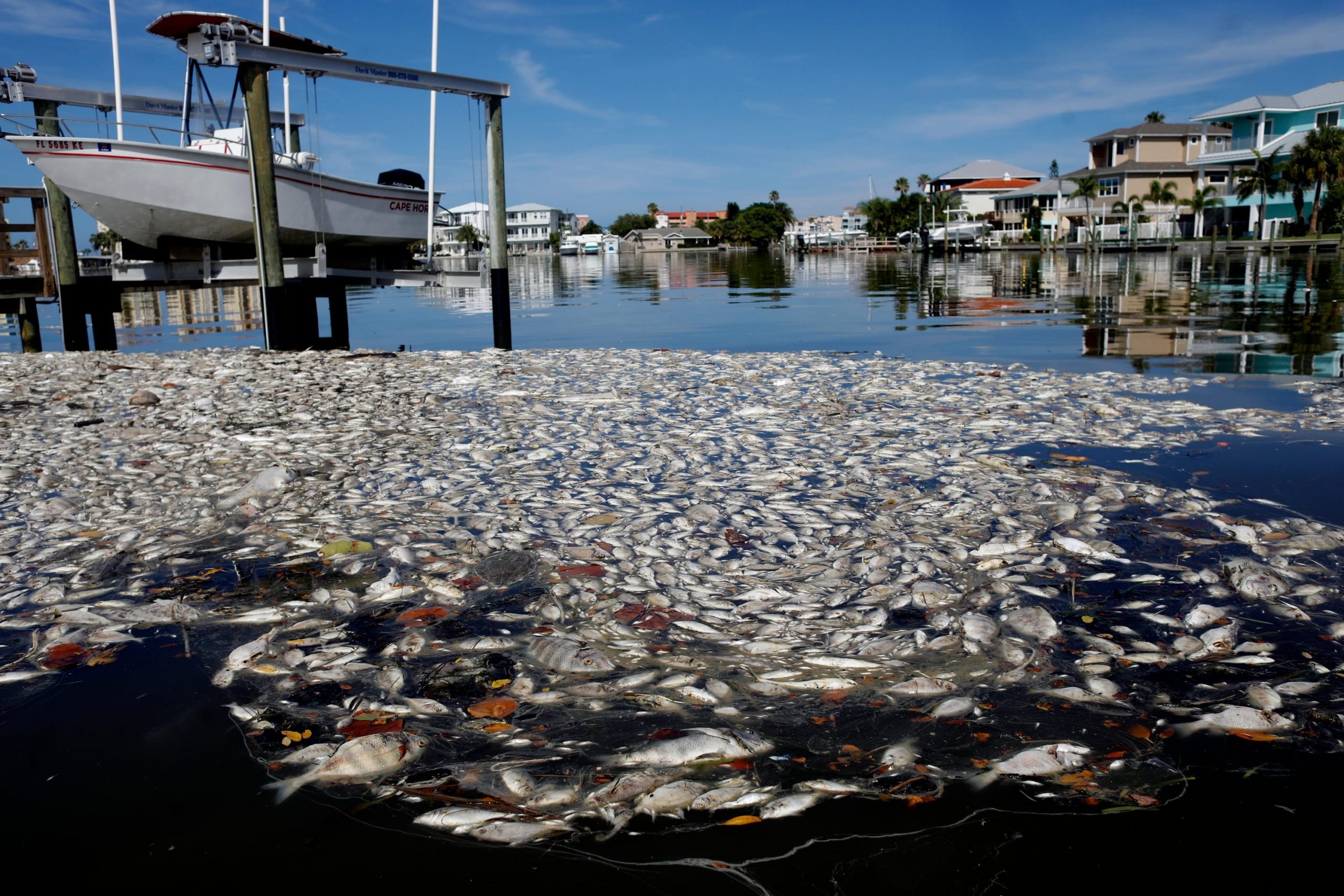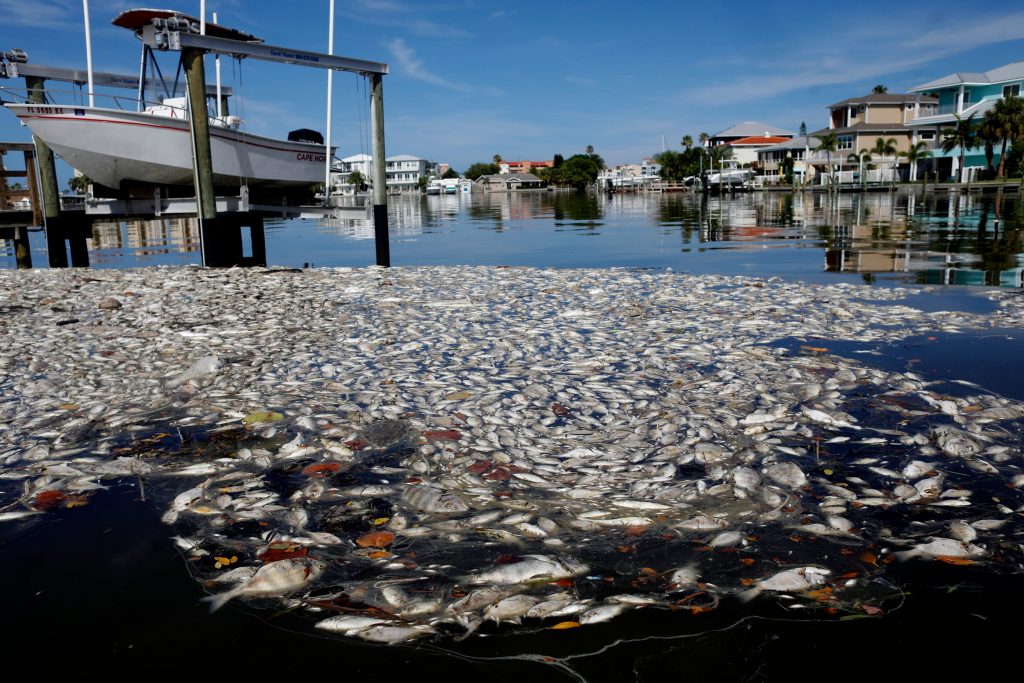
Octavio Jones/Getty Images
- Florida's red tide has killed 3 million pounds of marine life, including a manatee and a 400-lb grouper.
- One coastal restaurant closed shop due to the rotting smell of dead fish, Spectrum News reported.
- Lost Coast Oyster told Insider they've had to pause shellfish harvests for two straight months.
- See more stories on Insider's business page.
Over the past month, thousands of dead fish have washed up along Florida's once pristine Tampa Bay coast.
The culprit behind Florida's 3 million pounds of dead marine life is a harmful algae bloom that caused Florida to declare a state of emergency three years ago. It's called a red tide because it can turn the ocean a rusty red color.
Red tides are formed by Karenia brevis, a microscopic but powerful organism that occurs naturally in the Gulf of Mexico.
But it's not just life under the sea that's being damaged by the algae bloom – small businesses across Florida's tourism and seafood industries are suffering from the repercussions of the red tide as well.
"We were certainly impacted, we had to close for almost two months of harvest," Lost Coast Oyster, Tampa's first sustainable oyster farm, told Insider. "During that two months of closure, we still have to go out and take care of our farm … and the products we're sitting on and not able to sell, some of it dies."
Viral TikTok videos drew national attention to the causes of the red tide, as environmental activists and local residents documented the dire loss of marine life. Some said wastewater from an abandoned fertilizer plant that was recently released into the bay could have contributed to the strength of the bloom.
The most circulated video shows a tractor lifting a 400-lb dead Goliath Grouper out of the water, garnering just under 3 million views. Another user posted a video of a dead manatee washed up onshore with a caption that reads "juvenile manatee we found on the beach, dead. Can't believe this is happening."
David Scokol, the owner of Fresco's Waterfront Bistro in St. Pete told Spectrum's Bay News that he had to close the restaurant for a few days because the smell of the rotting fish was so bad.
In hopes of mitigating the stink, Scokol said he hired people to scoop up the dead fish from below the restaurant and put fans out along the outside patio. Fresco's suffered from a substantial drop in business, even after the smell went away, he told Bay News.
Other businesses that rely on local tourism such as fishing charters cut their season short by over a month, according to The Counter. Some local governments even hired shrimp boats to troll for fish carcasses, forming an "ad hoc armada" to lead clean-up efforts, The Tampa Bay Times' Zachary Sampson reported in July.
"You don't want to stay silent on this stuff because you don't want this stuff to happen," Dustin Pack, a fly fishing guide, told The Counter's Jessica Fu. "But then on the other side, you have guys whose livelihoods depend on the water. If you're telling everybody in the world that the fishery is dying, then nobody wants to come here."
